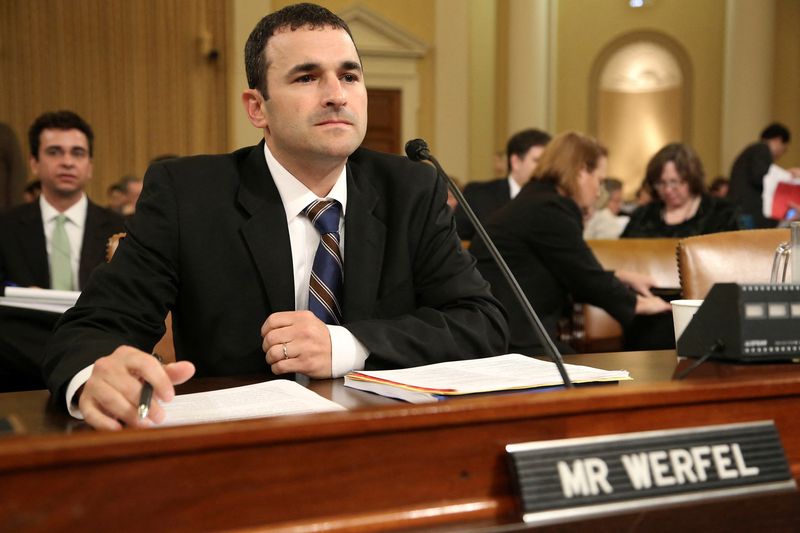
© Reuters. FILE PHOTO: Acting Internal Revenue Service Commissioner Danny Werfel takes his seat to testify before a House Ways and Means Committee hearing on the status of the IRS’s targeting of political groups, on Capitol Hill in Washington, June 27, 2013. REUTERS
By David Lawder
WASHINGTON (Reuters) – The U.S. Internal Revenue Service plans to hire nearly 30,000 new employees and deploy new technology over the next two years as it ramps up an $80 billion investment plan to improve tax enforcement and customer service, it said on Thursday .
The tax agency, in its long-awaited Strategic Operating Plan, said it will obligate about $8.64 billion of the new funding during the 2023 and 2024 fiscal years, and that 8,782 of the new hires during those years will be enforcement staff.
“The IRS is going to hire more data scientists than they ever have for enforcement purposes,” U.S. Deputy Treasury Secretary Wally Adeyemo told reporters, adding that these would complement more traditional tax attorneys and revenue agents in using new data analytics technology to identify audit targets.
The IRS also will continue to ramp up customer service hiring after taking on 5,000 new taxpayer services staff in recent months to answer telephones, reopen taxpayer assistance centers and process tax returns.
Including those new employees, customer services hiring will total 13,883 full-time-equivalent staff over the two-year period, according to the 148-page plan.
But a significant portion of these new hires will replace the nearly 12,000 IRS employees expected to retire over the next two years — including more than 4,700 enforcement staff, a U.S. Treasury official said.
The $80 billion in new funding from last year’s climate-focused Inflation Reduction Act is aimed at rebuilding the agency’s audit capabilities and 1960s-era computer technology after a decade of funding cuts mostly by Republican-controlled Congresses.
It also aims to help close the “tax gap” between taxes owed and those paid, estimated by Treasury at some $600 billion a year, by focusing new audits on the wealthiest Americans.
The Congressional Budget Office has estimated that the new funding will generate about $204 billion in new revenue during the next decade — funds that helped pay for the Inflation Reduction Act investments. The Treasury has used estimates as high as $400 billion over the decade, with higher collections beyond the 10-year budget window.
New IRS Commissioner Danny Werfel told reporters that the agency would soon provide hiring and spending plans for the 2025 fiscal year and would continually update the operating plan. The agency’s ability to deploy new technology to automate many functions would help dictate future staffing needs, he said.





